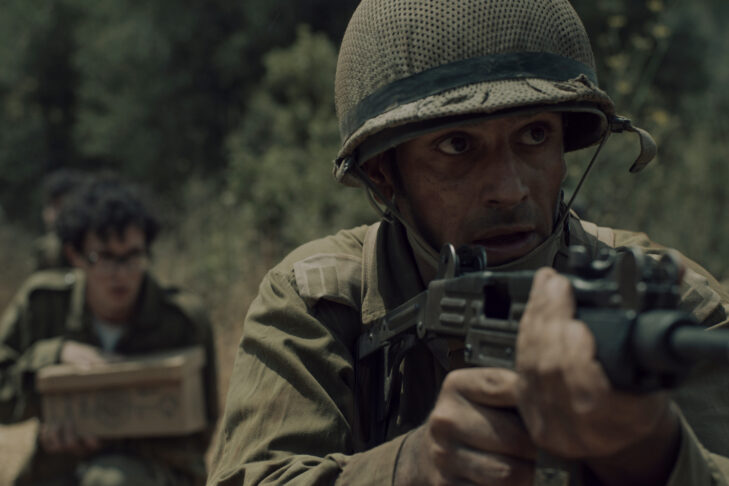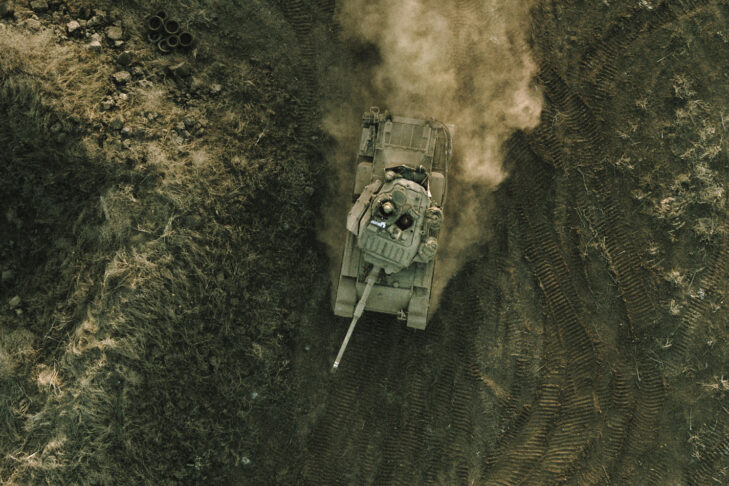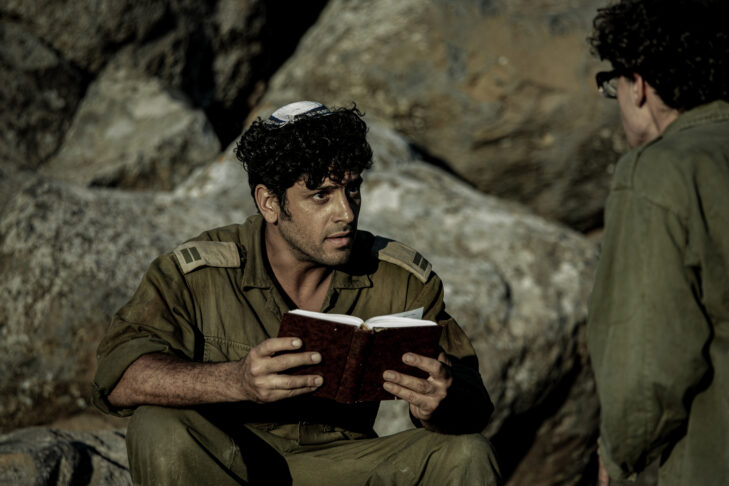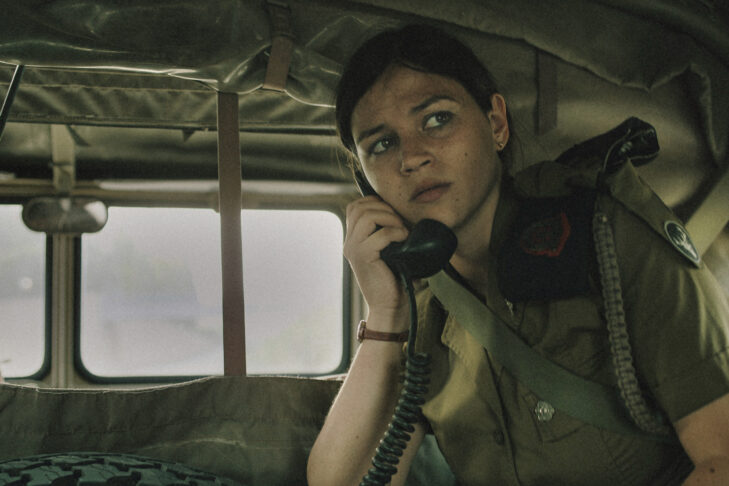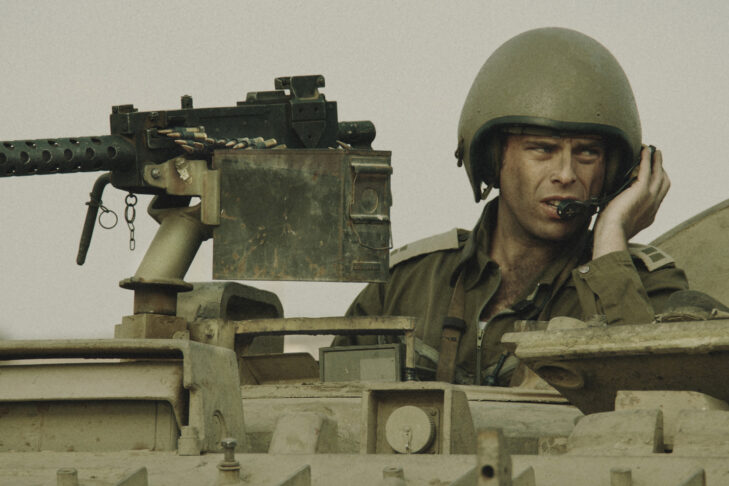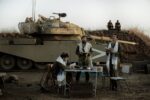It was the war that upended Israel’s confidence as a military powerhouse. When Syrian and Egyptian forces attacked Israel in 1973 during the Yom Kippur holiday, the country was woefully unprepared. The Arabs’ surprise offensive effectively ended Israel’s euphoria over its victory in the 1967 Six-Day War. In that earlier war, Israel had quickly dispatched the Jordanian, Egyptian and Syrian armies and captured large swaths of land in less than a week. The victory bestowed Israel with a sense of invincibility and arguably a false sense of security.
“Valley of Tears,” a 10-episode miniseries from Israel now streaming on HBO Max, depicts the country’s post-1967 state of mind in opening footage of triumphant military parades that celebrate the 25th anniversary of its founding. The series’ creators leave no doubt that at the time, Israel viewed itself as a country at the height of its military powers. Yaron Zilberman, a producer and one of the series’ creators, spoke to JewishBoston from Tel Aviv and asserted: “The Six-Day War was a fantasy. Israel felt immune and militarily superior.”
“Valley of Tears” drops viewers into Jerusalem in 1973 on the eve of Yom Kippur. The show’s creators introduce Israeli Jewish characters of all ages and backgrounds on the Friday before war breaks out on Saturday, Oct. 6. The soldiers at the Mount Hermon outpost in the Golan Heights are going about their routines. In Jerusalem, a trio of Mizrachi Jews of Moroccan descent, one of whom has been arrested for throwing a Molotov cocktail into an empty car, is due to report for military duty. The Moroccans, however, are members of “The Black Panthers.” The name, a nod to the original Black Panthers battling racism in America, fights for the rights of Sephardic Jews in an Israel that has long neglected them. Never directly violent toward people, the Black Panthers’ tactics are more Robin Hood than vigilante.
Ron Leshem, one of the series’ creators and writers, said “Valley of Tears” was 10 years in the making. Speaking over Zoom from his condo near the Boston Common, Leshem told JewishBoston that Israel’s Sephardim from North Africa and Arab countries had long been mistreated in an Israel run by a white Ashkenazi elite. “By 1973, the second generation of Jews from Iraq, Syria and Morocco was coming into their own political awareness,” he said. “They were no longer willing to accept police brutality or racism. They became political, representing a movement that demanded equality and fairness.” Leshem noted that the upcoming elections would have addressed social inequities. The war, however, disrupted that agenda, and the country was focused on surviving.
Related
Leshem said the series’ characters are composites of people he and his writing partner, Amit Cohen, know. “These are fictional characters,” he noted, “but they carry a combination of two or three actual souls. Their suffering centers on real people.” Avinoam is based on Cohen’s father. Like his fictional counterpart, the elder Cohen’s warnings also did not go up the chain of command.
Zilberman’s stepfather was an El Al pilot who also served in the air force. He was 7 at the start of the war and recalled that his stepfather went away for six months on army missions. He recalled that he knew war was erupting when he saw a combat plane flying low in his neighborhood on Yom Kippur. “We thought Israel would be taken over,” Zilberman said.
The Yom Kippur War’s psychological fallout was unprecedented in Israel. “The war completely changed the country,” Leshem said. “At no other time before 1973 was Israel so close to losing a war.” Added Zilberman: “From a social point of view, the war shook society. People mistrusted the government to protect them and to be ready for war. Afterward, Israel was crushed to pieces. Golda Meir had to resign and Moshe Dayan was no longer a cabinet minister. Other generals had to leave the army.”
Both Leshem and Zilberman said “Valley of Tears” has enabled Israelis to reexamine their country’s psychic wounds over the war “in a profound and vast way.” The series, which is currently airing in Israel and the United States, “has reopened Israel’s biggest trauma. The Yom Kippur War changed Israeli society, but we were not talking about it as a country,” said Leshem. In response, Israel’s network executives felt it was crucial to prepare the country to watch the series. Documentaries about the war were aired prior to the show’s airing and people shared their memories on radio talk shows. “There was a lot of PTSD,” observed Leshem, “and we wanted to provide an opportunity to digest the war correctly.”
Leshem and Zilberman estimate the series’ meticulous realism has attracted an impressive 20% of Israel’s television-viewing public. Costing $1 million per episode, the show is considered Israel’s most expensive production to date. The money seems to be well spent. “There is a healing process happening in Israel in response to this show,” Zilberman said. “Some of that healing is due to our humane, relationship-based approach to the story. It’s about everyone—not just high-ranking military officers or Ashkenazi Jews. The show captures the reality of war and Israeli society.”
“Valley of Tears” is streaming on HBO Max.


